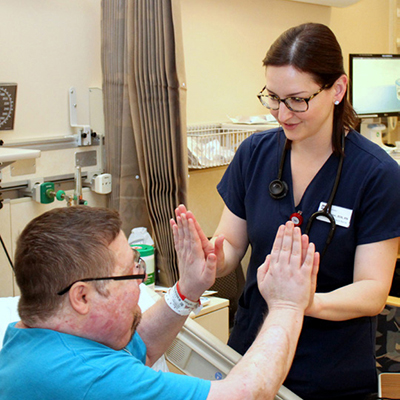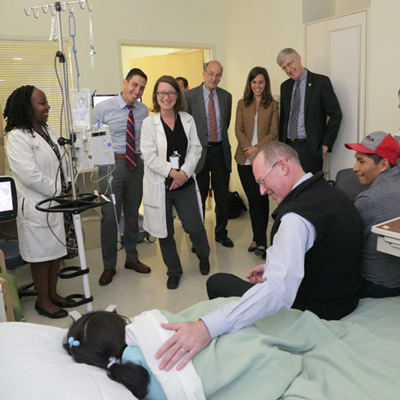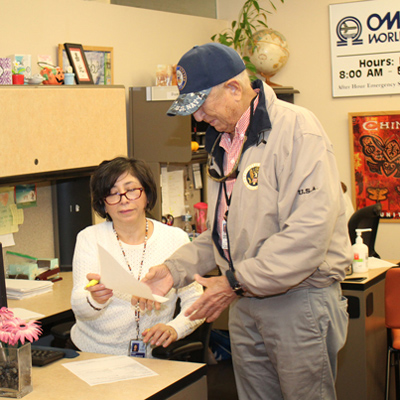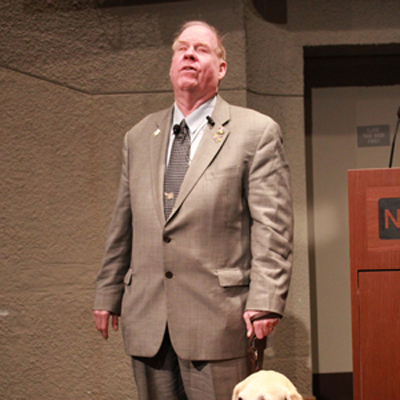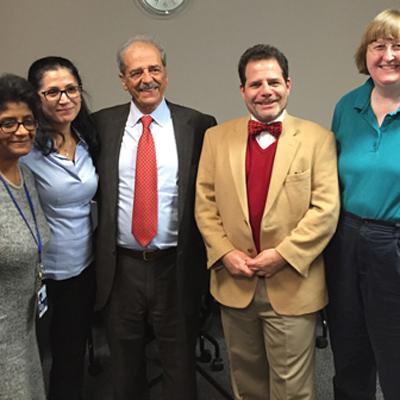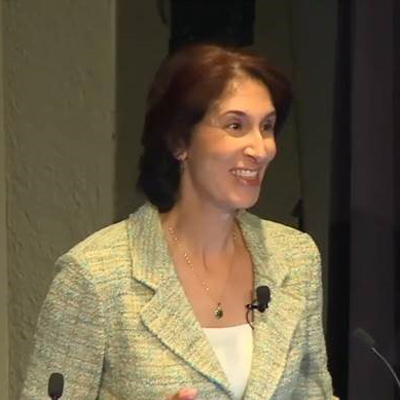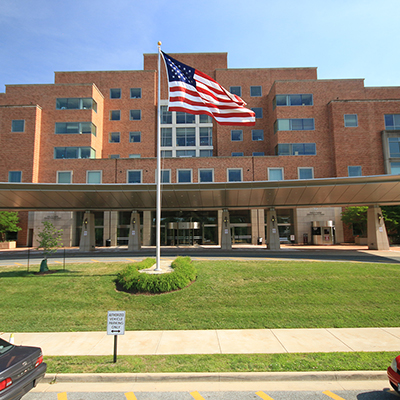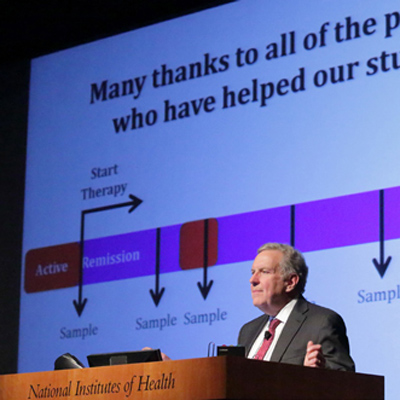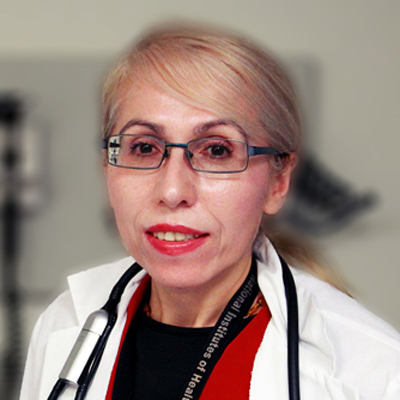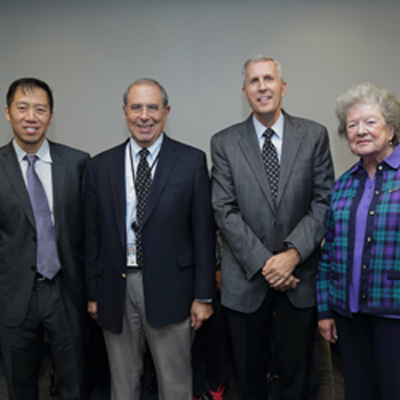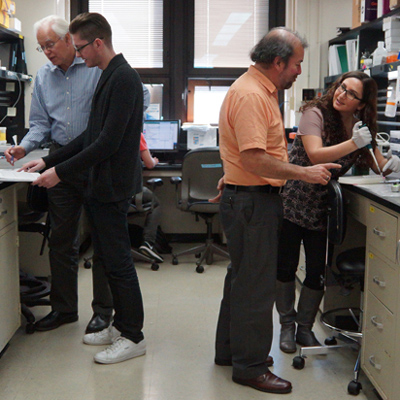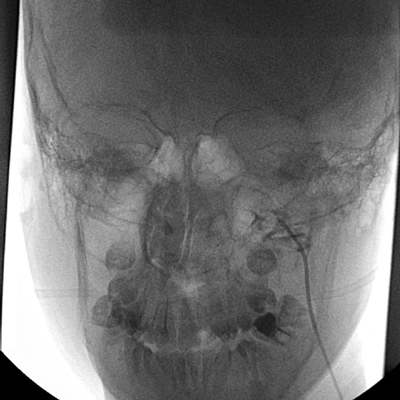UNC professor presents Astute Clinician Lecture on autoimmune swelling of blood vessels
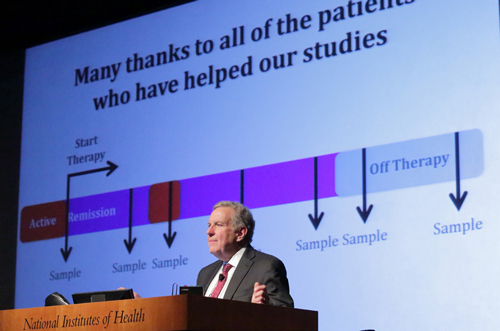
Dr. Ronald Falk presented the annual NIH Astute Clinician Lecture in early November in the NIH Clinical Center. Falk was introduced by Dr. Francis Collins, director of the NIH, who reflected on his experience learning alongside Falk in medical school.
"I found out during the four years of medical school Ron Falk was an exceptionally intelligent, thoughtful, hard-working, dedicated guy who was going to be undoubtedly a leading physician in the nation. And that turned out to be true," said Collins.
Falk is the chair of the Department of Medicine and a Nan and Hugh Cullman eminent professor at the University of North Carolina Chapel Hill. Through his lecture, "Perspective on Autoimmunity: A View from the ANCA Vasculitis Looking Glass," Falk discussed Anti-Neutrophil Cytoplasmic Autoantibodies (ANCA) vasculitis, a type of autoimmune swelling caused by autoantibodies. A person's immune system helps to fight germs by using normal antibodies in the blood. But some people have abnormal antibodies, known as autoantibodies that attack their cells and tissues instead of protecting them. More specifically, ANCA autoantibodies attack a white blood cell known as a neutrophil. When this attack takes place, vasculitis, or the swelling of blood vessels, can occur in many different parts of the body.
"ANCA, which started as a biomarker of disease, is now the name of the disease. And it's resulting in earlier diagnosis, more prompt therapy and much better long-term results," Falk said. He added, "I want to thank the patients who have helped us. Patients can tell you three months ahead of time whether they are going to flare, whether they are flaring or whether they are in remission. They know. And that's the next huge question, what do they know that we can't find a biomarker to tell them?"


